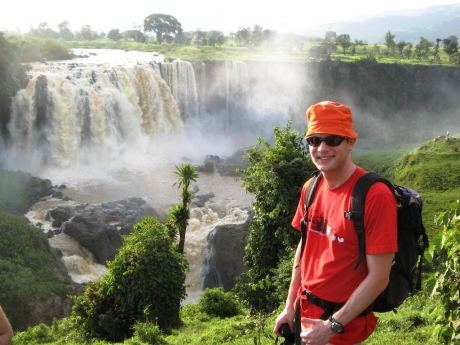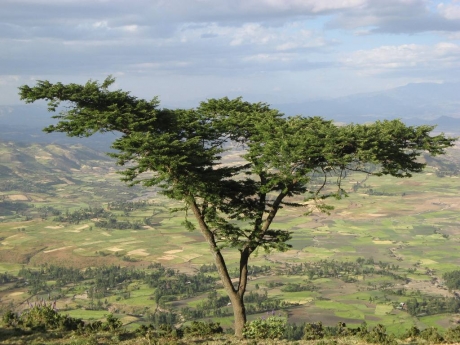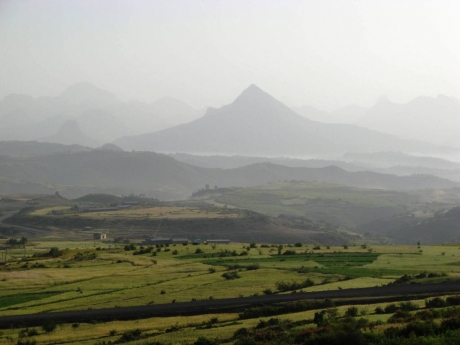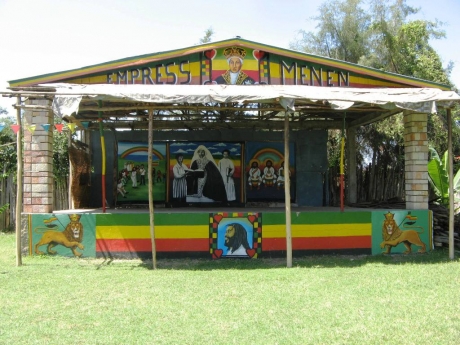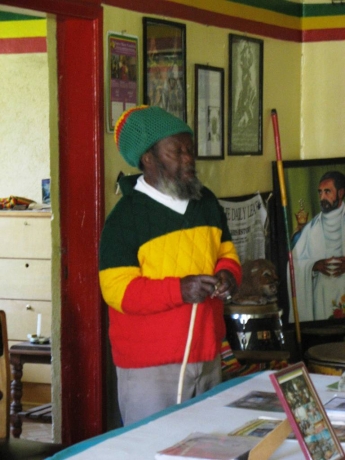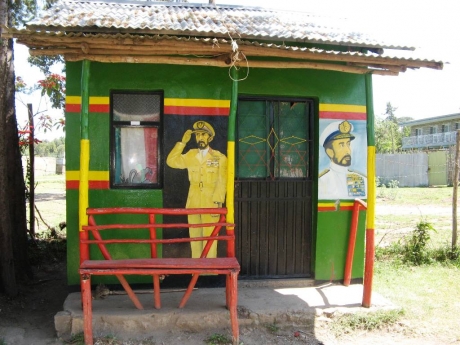Apart from the great sights, interesting culture and good food, there were some annoying parts in my trip. Being a foreigner in Ethiopia means being a source of money. I felt this in other third world countries, but it usually was on small scale, only the on the sidelines of my trip. In Ethiopia, it was central. The country isn’t violent at all. I never fell scared, but the annoyances…
Begging Children
In Ethiopia, it was very strong. Lots of children wander around tourists, call you “Faranji” (foreigner), talk to you, and eventually ask for something. Many times they approach you by shouting: You! Well, I understood that it’s a direct translation from Amhara, and it isn’t as rude as in English.

At the beginning, I spoke to them. Later on in the trip I ignored them. And on my last day, I heard myself shouting at them to get lost. I had accumulated to many of these little annoyances.
Well, you don’t deal with children all day. Many grown ups beg as well, sometimes people that are well dressed and have an excellent command of English. In one case, someone approached me, complained about how Ethiopians always want money, and how he isn’t into it – because he’s a true Christian (or some other explanation). Eventually, he also wanted some money…
Extra Extra Extra
I also found that too many people in the tourism business cannot be trusted. I don’t mind paying a price that’s much higher than what locals pay. I learned to accept it a long time ago. It even happens in Israel.

The problem is that they don’t keep up to the agreements. I’m not talking about them demanding a tip. You always find out that something that you agreed upon isn’t included in the price. If you make the deal and go for the trip only later, negotiations start from the beginning. Reasonable requests from tourists are met with ridiculous extra prices.
These never ending negotiations didn’t happen all the time. There were cases where everything went well, as agreed, and I would tip the people with a nice tip. Unfortunately, these cases were rare.
A dark night
Well, the last story combines my stupidity as well. I wanted to travel from Mekele to Lalibella in one day. By car, it’s easy, but there wasn’t anyone doing it from Mekele. The more conventional option is to take a bus to Woldia, stay a night there, and take a morning bus to Lalibella.

Having arrived in Woldia at noon, I was certain that I could make it. After dropping off the bus, a young, well dressed man approched me, told me he was a student that wanted to improve his English skills, and asked if could join me in walking around. I told him that I wanted to go further and he offered to help.
Another guy joined us, and he found a truck that was leaving at 16:00. After some negotiations, we agreed on the price. These two guys accompanied me. The truck didn’t show up till 17:30, and began collecting goods from the market. I almost broke the deal and went to find a hotel, but they convince me that it was leaving in 10 minutes.
After mounting the truck, the two guys came to me and demanded a tip. I gave them some money, but they wanted more, saying: “Give us at least 50!”. I left them somewhat disappointed.

Well after dark, we left town. There were a lot of stops on the way, and the driver and his mates were speaking very loudly throughout the drive. As you can see, the cracked front window didn’t add to the atmosphere.
A 4 hour ride turned into a night trip. At about 4:30, they stopped and went to sleep, and started moving only at dawn, driving 10 more minutes into the city. I guess they weren’t allowed to enter the city at dark.
Of course, they forgot that they promised to bring me to a certain hotel, and they drove me there only after I said I wouldn’t pay. Well, at least there was a happy end – I had all the day ahead of me in lovely Lalibella:

More pictures from Ethiopia
